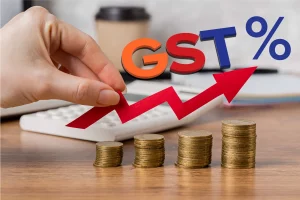 Madurai District Borewell Rig Owners and Agents’ Welfare Association, following several failed attempts to represent their issue to the Union Finance Ministry, has once again appealed to the authorities to take up the issue of reduction of GST for borewell services in the upcoming 54th GST council meeting.
Madurai District Borewell Rig Owners and Agents’ Welfare Association, following several failed attempts to represent their issue to the Union Finance Ministry, has once again appealed to the authorities to take up the issue of reduction of GST for borewell services in the upcoming 54th GST council meeting.
The members said, following the implementation of GST in 2017, there was no proper notification about the inclusion of borewell services in GST taxation. The borewell companies too, with a limited idea of GST and its procedures, ran their business as usual without getting into the new tax system, they said.
B. Suresh, president of the association, said that upon knowing that their services fell under the 18% GST category, they made several appeals to the elected representatives in the State to reduce the tax for borewell services. “Legislators and MPs on their part raised the issue with the Ministry of Finance about exemption of borewell services from GST or reduction in the tax,” he said.
Their primary argument was that since their services were mainly used for agriculture and agro-based industries in addition to household borewell sinking, the imposition of such a huge burden in the form of tax would have to be borne by the farmers ultimately.
“Nearly 70% of agriculture depends on groundwater and the rig operators play a crucial role in getting farmers their adequate supply of groundwater. In this situation, the rig operators who were already facing burden due to increasing fuel costs, were furthermore pressured by the GST imposition,” he said.
As both fuel costs and wages were not covered by GST, the operators were not getting any input tax credit.
During the Fitment Committee meeting of GST which was constituted in July 2018 to discuss the issue with the State and Union government, it was decided that the matter would be examined by the Tamil Nadu government as there were a large number of rig operators in the State.
The then State government, with a vague idea of borewell services, submitted its report to the Union government stating that about 37% of the cost was towards drilling and the rest was spent on materials such as submersible pumps, pipes, etc. “Hence the exemption may not mitigate the burden of tax on the farmers, and it would only break the Income Tax Credit Chain (ITC), resulting in embedded tax which will have to be borne by the landowners and farmers and not by the drillers,” the report of Tamil Nadu government noted.
The report concluded that the exemption could lead to evasion of tax and may not benefit farmers, so the demand for the exemption of borewell services from GST would not be considered.
Arguing over the State government’s report, Mr. Suresh said they agreed that only 37% of cost was spent on drilling and the remainder was for submersible pumps and pipes, but they failed to note that the purchase of the materials which constitute the remaining 63% of cost would be borne by the customers.
“If it is a government contractor who takes up the job of rigging along with other jobs like construction or raising a structure, he would spend for all the materials. But, in case of individual borewell companies, it is always the landowners who bear the cost of materials,” he said.
So, taking into consideration the depleting groundwater level and increasing need for borewells, the tax rate should be reduced to 5%, as the Union government did for domestic maintenance, repair and overhaul services, Mr. Suresh added.
Source: The Hindu


